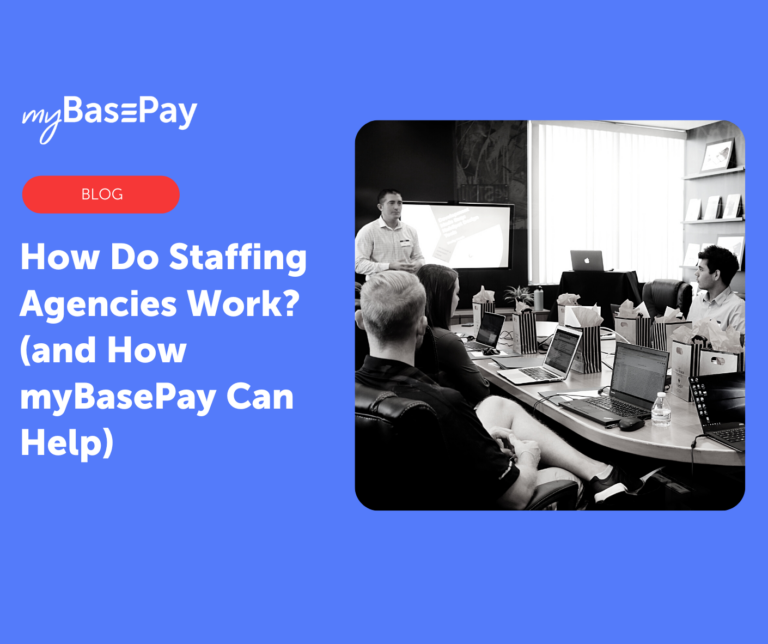How the Impending Recession Will Hurt Your Business’ Freelancers
Nearly everyone in the United States has felt the effects of rising costs in recent months. From food to fuel, inflation has affected nearly every aspect of life. Economists believe there is an impending recession that will hit by 2024.
Doubtless, this recession will affect employees and business owners from every walk of life. However, there are some, such as freelancers who will especially struggle in such hard economic times.
Recessions often follow inflation because as the prices of goods ride, people tend to spend less and less. They cut back and do away with more “frivolous” expenses. This decrease in spending and subsequent decrease in production is what makes up a recession.
A recession is essentially the period in between rises and falls in the economy and usually only lasts a few months. However, that few months can make all the difference to someone living paycheck to paycheck or not earning a significant income. Most freelancers, as it happens, especially if they are solely doing freelancing, are not earning a stable high income.
Freelancers may not risk lay-offs during a recession, but they do risk not being hired at all, which can be worse. If a freelancer is not working, they are not earning an income.
This poses an obvious problem. As the impending recession approaches, it is important to consider in what ways this will affect not only your company but your assets and allies as well. What affects the freelancers you hire (or don’t in this case) will affect your business, as well.
Freelancers Are Low On the Totem Pole
When in the midst of a recession, people spend less on little luxuries, entertainment, and other unnecessary goods and services. These are less important than being able to put food on the table. Anything that is not necessary for day-to-day living is the first thing people stop spending on. That may seem reasonable, if a little inconvenient.
However, for those that make or supply those “little luxuries,” it creates a massive burden. Day-to-day life depends on selling these less-than necessary goods and services.
From a business perspective, the equivalent to entertainment is anything that does not get immediate results. Goods must still be manufactured, shipping and logistics must be taken care of, and setting up store fronts are all completely necessary to running a business and staying afloat. However, what affects the little man also affects a company on a larger scale, and fearing worse times ahead, companies also cut back on costs during a recession.
In recent months, companies have also had to deal with rising costs in supplies and materials for products and high fuel prices for transportation. As companies spend less, however, they must make decisions on what to cut. So, in order to save funds, something has to give.
This tends to be anything considered overhead — whatever they can get by without while still running a successful business. So, marketing tends to suffer. This can include art, content, branding, advertising, etc. A company may decide it can wait on that rebranding decision or does not need much new content at the moment.
Incidentally, freelancers tend to be hired for much of what is considered marketing. Freelance writers, artists, and designers that a company usually calls suddenly find themselves without many clients.
They are the first to go as larger companies and businesses cut costs. Because these overhead jobs do not give immediate results (it takes time for a consumer to see and respond to an advertisement, for example), companies find they can do without them.
A company may suffer and lose business during a recession, but they tend to have enough to get by, especially if the recession only lasts the typical few months. However, for the individual, any loss in business can have significant impacts. This leaves freelancers scrambling for work.
Companies Will Likely Do More In-House
Some companies still see value in a strong marketing strategy.
They might see the value of attracting new customers, even in the midst of a recession. However, rather than turn to a specialist or someone such as a freelancer who has the time and resources to do much of this work, companies tend to turn to employees they already have during a recession.
In order to save funds on “people,” companies will pressure employees they already have to take on different responsibilities or an extra workload. Obviously, this is detrimental to freelancers who rely on marketing jobs from larger companies.
Cutting Freelancers Doesn’t Just Hurt the ‘Little Man’
Though a freelancer will feel the hurt more acutely from lack of hires during a recession, the loss of valuable assets also hurts the larger companies. Companies that vastly cut their marketing strategy or turn in-house lose the value of skilled freelance work.
Freelancers are often specialists in their fields, and because they have the time and proper resources, the work they do will be vastly superior to a regular employee’s attempt. Even if the employee is highly skilled in the area, they still have their regular job to fulfill. One way or another, quality has to give.
If the quality is not there, the company is still losing value. For example, if website content is not to the standard that it would be with a specialist, it reflects badly on the company as a whole.
This is the problem with cutting what does not get immediate results …
The consequences are not immediately visible either but will be in the long run. This is why it may still be in a company’s interest to hire the specialist and cut back on costs in other ways during a recession. Cutting down on freelance work does not just hurt the “little man” but the larger company as well.
Author: Cesar Jimenez, myBasePay CEO
Cesar A. Jimenez is an entrepreneur, investor, and military veteran with over 25 years of staffing industry expertise successfully leading technology staffing organizations. His expertise in the IT industry allows him to use his experience as a thought leader for talent acquisition, staffing, IT, and recruitment technologies with a passion for contingent workforce solutions. Cesar has held various leadership roles for both a global staffing organization and technology solutions companies. This expertise has enabled him to develop alternative workforce models that provide the agility for organizations to be competitive in today’s marketplace. In his spare time, he enjoys spending time with hisfamily, working out, and coaching high school baseball players.






